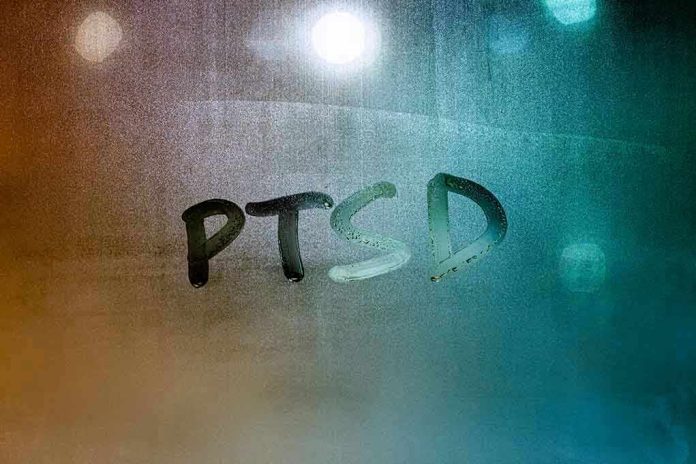
The FDA’s rejection of a promising PTSD drug combination leaves millions still waiting for effective relief.
At a Glance
- The FDA advisory committee voted 10-1 against the PTSD drug combination brexpiprazole and sertraline.
- The decision was based on conflicting data from clinical trials and concerns over efficacy.
- No new FDA-approved PTSD treatment has emerged from this effort, leaving current options unchanged.
- Stakeholders must reassess strategies for innovative PTSD treatments.
FDA Rejects PTSD Drug Combination
The FDA Psychopharmacologic Drugs Advisory Committee recently made a significant decision: it voted 10-1 against recommending the approval of brexpiprazole combined with sertraline for the treatment of PTSD. The decision came after a thorough review of the clinical trial data, which revealed conflicting results. Despite one phase 3 trial showing promise, the other was negative, and the phase 2 study had methodological issues. Such discordant results left the committee unconvinced of the combination’s efficacy.
Brexpiprazole, an atypical antipsychotic, was not initially developed for PTSD treatment. However, Otsuka Pharmaceutical and Lundbeck saw potential in combining it with sertraline to address unmet needs in treatment-resistant PTSD cases. The companies submitted a supplemental new drug application (sNDA) to the FDA in June 2024, hoping to offer a new option to the millions affected by PTSD.
Impact on Stakeholders and Patients
The FDA’s decision dashes hopes for a new, FDA-approved PTSD treatment, leaving patients and clinicians reliant on existing therapies like sertraline and paroxetine. These medications are often inadequate, and many patients discontinue use due to side effects or lack of efficacy. The rejection has significant implications for stakeholders, particularly Otsuka and Lundbeck, who must now reassess their strategy for developing and approving new PTSD treatments.
Patients with PTSD, especially those for whom current treatments are ineffective, remain underserved. The advisory committee’s recommendation makes it unlikely that the FDA will approve the combination, despite ongoing reviews. Meanwhile, clinicians can still prescribe the drugs off-label, but without FDA approval, insurance coverage is unlikely.
Long-Term Effects and Industry Reactions
The rejection serves as a stark reminder of the challenges in developing effective psychiatric treatments. High placebo response rates and inconsistent trial results have plagued previous efforts to expand pharmacological options for PTSD. This decision underscores the rigorous evidentiary standards that new psychiatric drugs must meet for approval.
Industry experts and advocates express diverse opinions. Dr. Jess Fiedorowicz and Dr. Walter Dunn voiced skepticism over the data’s ability to demonstrate clear efficacy. In contrast, patient advocate Laura Block, the committee’s lone “yes” vote, emphasized access concerns but cautioned against false hope. Public Citizen’s Michael Abrams highlighted the weak and conflicting evidence as a reason for rejection.
Future Directions for PTSD Treatment
Despite the setback, Otsuka and Lundbeck remain committed to collaborating with the FDA. They may need to conduct additional trials or pivot their development strategies. The broader pharmaceutical industry must grapple with the challenge of developing robust trials that can demonstrate efficacy in complex conditions like PTSD.
The decision also has broader implications for regulatory standards and drug development in psychiatric disorders. It sets a high bar for future PTSD drug approvals, emphasizing the need for clear and consistent evidence. As stakeholders reevaluate their approaches, the need for effective and tolerable PTSD treatments remains a critical unmet need.
Sources:
Official Otsuka/Lundbeck press release




